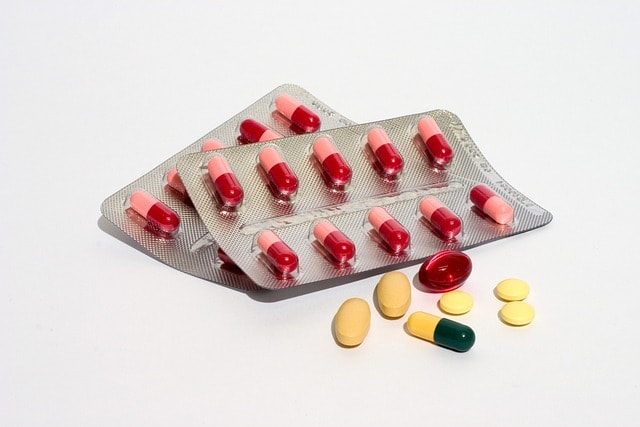Orange Tablet I-2: Uses, Dosage, and Side Effects
The Orange Tablet I-2 is an ibuprofen-based NSAID often used to treat pain and inflammation. This guide covers its main uses, dosing instructions, and side effects.
Key Takeaways
The Orange Tablet I-2, containing ibuprofen, is a nonprescription NSAID used for pain relief, inflammation reduction, and fever management, effective for both acute and chronic pain conditions.
Dosage guidelines recommend 200 to 400 mg for adults every 4 to 6 hours, not exceeding 1200 mg per day, while precautions should be taken for individuals with certain medical conditions or histories of severe allergic reactions.
Potential side effects range from common mild issues like stomach upset to serious complications such as gastrointestinal bleeding and cardiovascular problems, necessitating careful adherence to recommended dosages and consultation with healthcare providers.
What Is the Orange Tablet I 2?
The Orange Tablet I-2, classified as a nonsteroidal anti-inflammatory drug (NSAID), is a common remedy for pain and inflammation. Its active ingredient, ibuprofen, works by inhibiting enzymes that produce pain-causing substances known as prostaglandins. This mechanism not only alleviates pain but also reduces inflammation, making it a versatile medication for various conditions.
What’s more, ibuprofen can be obtained without a prescription, adding to its accessibility. It’s commonly used for minor pains, such as headaches and menstrual cramps, and can also reduce fever.
Its utility extends to managing more chronic conditions like rheumatoid arthritis, providing relief from inflammation and swelling. This makes the Orange Tablet I-2 a staple in many households, offering a go-to solution for everyday discomfort.

Varieties of the Orange Tablet I 2
The Orange Tablet I-2 comes in various forms and colors, each catering to different preferences and needs. Available in red, orange, and white, these tablets can be either round or capsule-shaped, depending on the manufacturer. This variety ensures that users can select a form that best suits their comfort and ease of ingestion.
Brand names such as Advil and Motrin are among the most recognized when it comes to ibuprofen. These brands offer the same active ingredient but may differ in their inactive components, packaging, and pricing. Despite these differences, the core purpose remains the same: to provide effective pain relief and fever reduction.
Uses of the Orange Tablet I-2
The Orange Tablet I-2 is widely acclaimed for its pain reliever properties. It is commonly used to alleviate pain associated with arthritis, menstrual cramps, muscle aches, and minor injuries. This makes it a versatile option for managing both acute and chronic pain relievers scenarios.
In addition to pain relief, the Orange Tablet I-2 is effective in reducing fever, making it a valuable medication during flu seasons or common colds. Ensuring you are using the correct medication can be facilitated by the pill identifier tool, which helps confirm you have the right pill for your symptoms. This tool can be particularly useful given the variety of medications available on the market.
Dosage Guidelines for the Orange Tablet I 2
Following the correct dosage guidelines for the Orange Tablet I 2 is crucial for both effectiveness and safety. Ibuprofen should not be used by individuals with a history of severe allergic reactions to NSAIDs. Being aware of potential allergic reactions before taking the medication is essential to prevent adverse effects.
Recommended Dosage
For adults and children, the recommended dosage of the Orange Tablet I 2 is between 200 to 400 mg every 4 to 6 hours, with a maximum daily dosage not exceeding 1200 mg. This ensures that the medication remains within safe limits while providing the desired pain relief. For children, the typical dosage is around 200 mg, but it is always best to consult with a healthcare professional to determine the appropriate amount.
Adhering to these guidelines helps prevent the risk of overdose and serious side effects. Exceeding the recommended dosage can result in severe complications, highlighting the need to follow prescribed dosages carefully.

Special Considerations
If more pain relief is needed while taking ibuprofen, it’s important to talk to your doctor rather than increasing the dosage on your own. Should pain persist after taking the Orange Tablet I 2, consulting your doctor for further advice is necessary. Reading the labeling and instructions ensures safe use and proper dosage understanding. Adhering to the specified dosage for the I-2 pill helps prevent severe complications and health issues.
Precautions should be taken to avoid using the Orange Tablet I 2 if there is a history of stomach ulcers, bleeding disorders, or kidney problems. A healthcare professional should be consulted to ensure the medication’s safe and effective use.
Potential Side Effects of the Orange Tablet I 2
Like all medications, the Orange Tablet I 2 comes with potential side effects. These can range from common, mild issues to serious, life-threatening conditions.
Understanding these side effects helps users make informed decisions about their health.
Common Side Effects
Common side effects of the Orange Tablet I 2 include stomach upset, mild dizziness, and gastrointestinal discomfort. These symptoms are generally mild and can often be managed by taking the medication with food or milk to minimize stomach irritation. Users might experience stomach pain, nausea, or dizziness, particularly if the pill is taken on an empty stomach.
For minor pain, muscle aches, or menstrual cramps, the relief it provides typically outweighs these common side effects. However, if side effects persist, it may be necessary to seek medical advice.
Serious Side Effects
Serious side effects, though less common, require immediate medical attention. These include severe allergic reactions, gastrointestinal bleeding, and potential cardiovascular issues such as heart attack and stroke. High blood pressure may also occur as a severe side effect associated with prolonged use of ibuprofen.
Exceeding the recommended dosage increases the risk of serious side effects, including gastrointestinal issues and kidney damage. Symptoms of gastrointestinal bleeding, such as vomiting blood or having black, tarry stools, necessitate immediate medical evaluation.
Discontinue ibuprofen and seek immediate medical attention if severe side effects occur. Risk factors for severe stomach bleeding include being older than 60, a history of stomach ulcers, and consuming three or more alcoholic drinks daily. A stomach bleeding warning applies in these cases.

Precautions and Warnings
Safety precautions are essential when using the Orange Tablet I 2 to prevent accidents and adverse effects. Medications should be stored out of sight and reach of children to prevent accidental ingestion. Using a locked cabinet for medication storage enhances safety and security. Combining ibuprofen with alcohol can heighten the risk of stomach irritation, making it important to avoid alcohol while using this medication.
Discussing potential allergic reactions and interactions with healthcare providers before use can prevent severe allergic reaction and harmful consequences. Being informed and cautious can significantly reduce the risk of side effects and improve the overall effectiveness of the medication.
Allergic Reactions
People who have had severe reactions to aspirin or NSAIDs should steer clear of ibuprofen. It’s important to prioritize their safety. People with stomach problems, high blood pressure, heart disease, liver cirrhosis, kidney disease, or asthma should be cautious when using ibuprofen. Allergic reactions to ibuprofen may present as rash, itching, swelling, dizziness, and trouble breathing. Severe allergic reactions may present as hives, facial swelling, asthma, and shock.
Discontinue ibuprofen use immediately if an allergic reaction occurs. It is important to seek medical assistance immediately. Individuals with gastrointestinal issues or allergies should always consult a healthcare provider before using ibuprofen to ensure it is safe for them.
Drug Interactions
Ibuprofen can interact with various medications, affecting their efficacy and increasing side effects. Taking ibuprofen in combination with other medications may lead to unpredictable and hazardous effects. Before using ibuprofen, individuals with certain medical conditions should seek advice from a healthcare professional. This is also true for those who are taking other medications.
These interactions can complicate treatment plans and pose significant health risks, making it crucial to be fully aware of all medications being taken and their potential interactions.
Pregnancy and Breastfeeding
Pregnant women should consult a healthcare professional before using ibuprofen, as it poses potential risks to the unborn child. This precaution ensures the safety of both mother and baby, preventing adverse effects from the medication.
Safe Storage and Disposal
Storing the Orange Tablet I 2 in a cool, dry place away from direct sunlight is essential to maintain its efficacy. Ensuring that the medication is kept out of reach of children is critical to prevent accidental ingestion. Using a locked cabinet for storage can enhance safety and prevent accidental access by children.
Follow proper disposal practices to prevent misuse and protect the environment. Options include taking the medication to a pharmacy for disposal or following local guidelines to avoid harming wildlife or contaminating water sources.
Alternatives to the Orange Tablet I 2
For those seeking alternatives to the Orange Tablet I-2, several options are available:
Topical treatments like diclofenac gel provide localized pain relief without significant systemic risks.
Herbal remedies may also serve as complementary options for pain relief alongside conventional treatments.
Regular physical activity can help manage pain and reduce dependence on non narcotic pain reliever medications.
Acupuncture is another non-medication therapy that some find effective for managing pain. Before trying new treatments, it is essential to consult a doctor for personalized advice to ensure safety and efficacy.
Recognizing and Addressing Misuse
Frequent misuse of the Orange Tablet I-2 can lead to gastrointestinal issues, kidney problems, and cardiovascular complications. Serious health problems associated with ibuprofen misuse include stomach bleeding, kidney damage, and heart issues. Misuse can lead to mood swings and irritability. Additionally, there may be an overwhelming preoccupation with obtaining and using the medication.
Responsible use of the Orange Tablet I-2 helps prevent health issues and ensures effective pain management. Proper disposal of the medication when it is no longer needed is important to prevent accidental ingestion or environmental contamination.
Treatment for Non-Opioid Painkiller Addiction
Non-opioid painkillers like ibuprofen do not produce intense euphoria, making it harder to recognize addictive behaviors. Withdrawal symptoms and use patterns differ between non-opioid and opioid addictions. Early recognition of addiction is crucial for effectively addressing it and mitigating long-term consequences.
Comprehensive treatment for painkiller addiction includes medications, behavioral therapies, support groups, and counseling. Support groups provide community and encouragement during recovery from non-opioid painkiller addiction. Evidence-based approaches such as counseling and behavioral therapies, along with medications, can effectively treat non-opioid painkiller addiction.
A comprehensive treatment plan must take into account the individual’s unique circumstances. It should also consider co-occurring disorders and their social support systems.
Summary
The Orange Tablet I-2, with its active ingredient ibuprofen, stands as a vital tool in pain and fever management. Its versatility in treating conditions ranging from minor aches to chronic inflammation underscores its importance in everyday healthcare. Adhering to dosage guidelines, being aware of potential side effects, and consulting healthcare professionals when necessary are crucial steps for safe and effective use. By understanding its uses, risks, and alternatives, individuals can make informed decisions to manage their health responsibly and effectively.
The active ingredient in the Orange Tablet I-2 is ibuprofen, a nonsteroidal anti-inflammatory drug (NSAID) that helps alleviate pain and inflammation.
The Orange Tablet I-2 effectively treats pain associated with arthritis, menstrual cramps, muscle aches, and minor injuries, as well as helping to reduce fever.
The recommended dosage for adults is 200-400 mg every 4-6 hours, with a maximum limit of 1200 mg per day. Adhering to this guideline ensures safe and effective use.
Common side effects of the Orange Tablet I 2 include stomach upset, mild dizziness, and gastrointestinal discomfort. It is advisable to monitor these symptoms and consult a healthcare professional if they persist.
Store the Orange Tablet I 2 in a cool, dry place, away from direct sunlight and out of reach of children, to ensure its longevity and safety.




